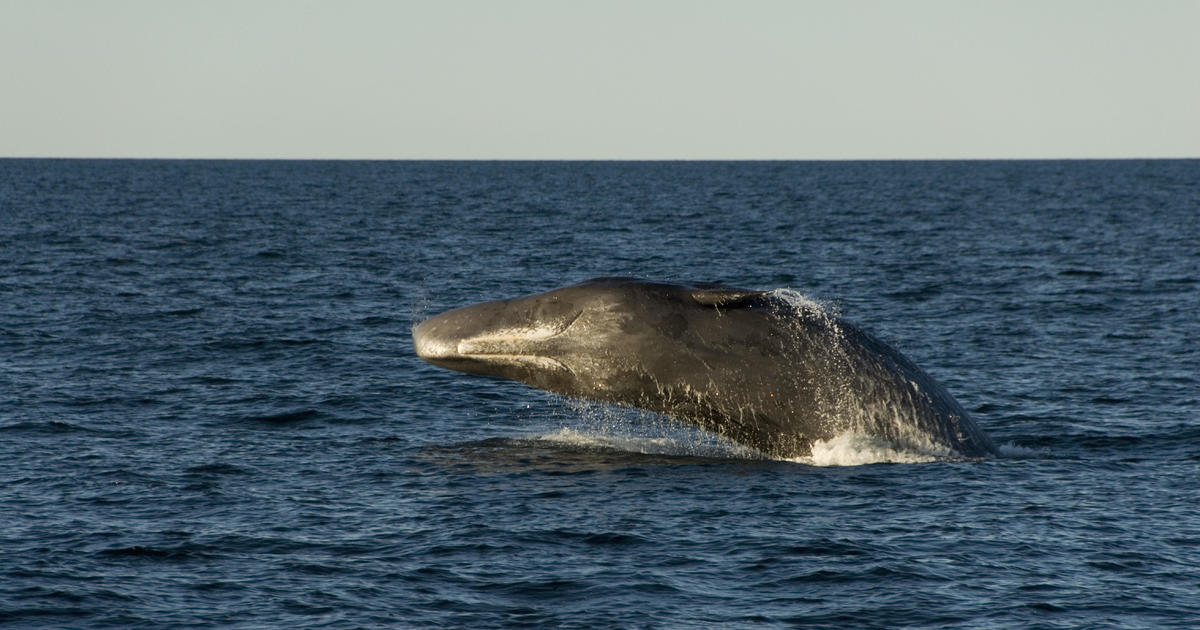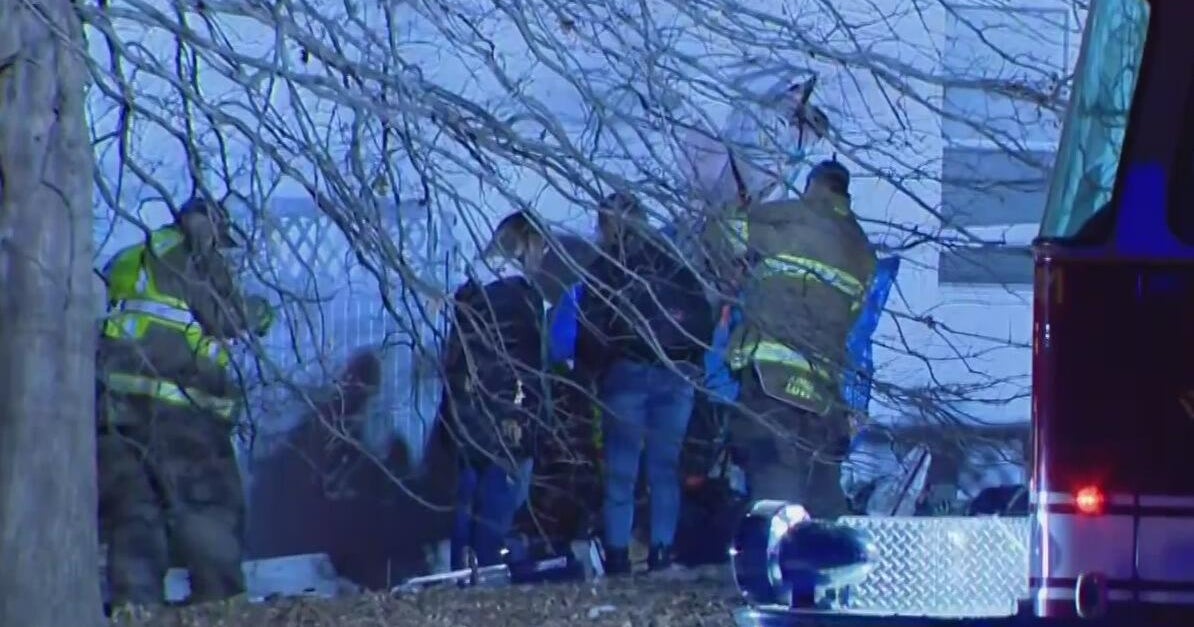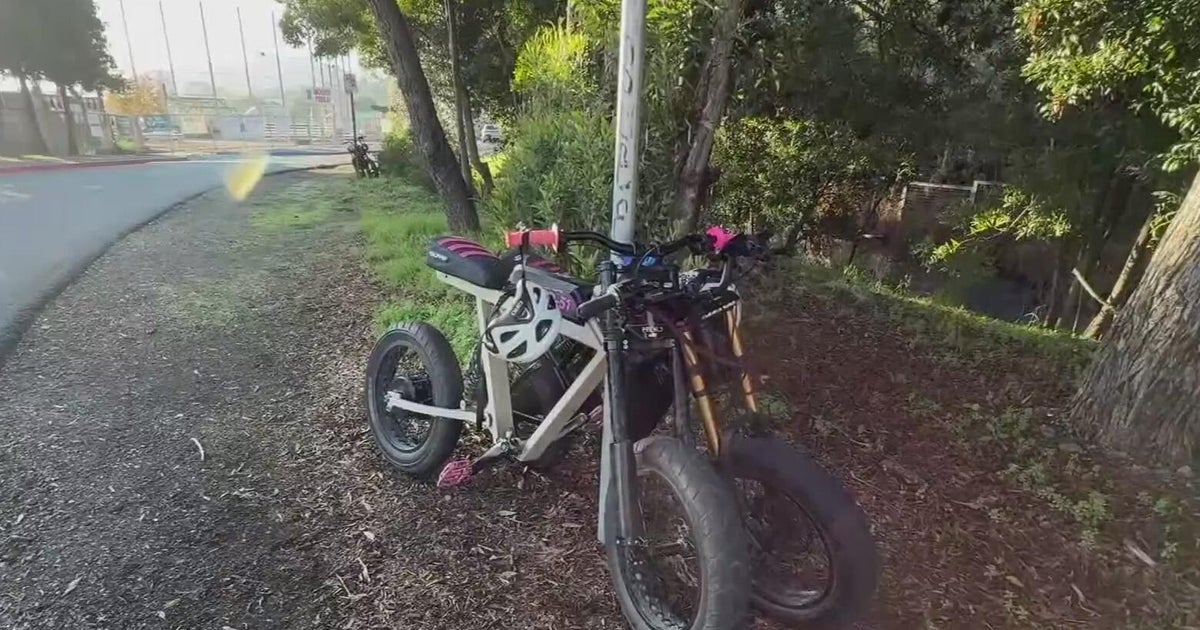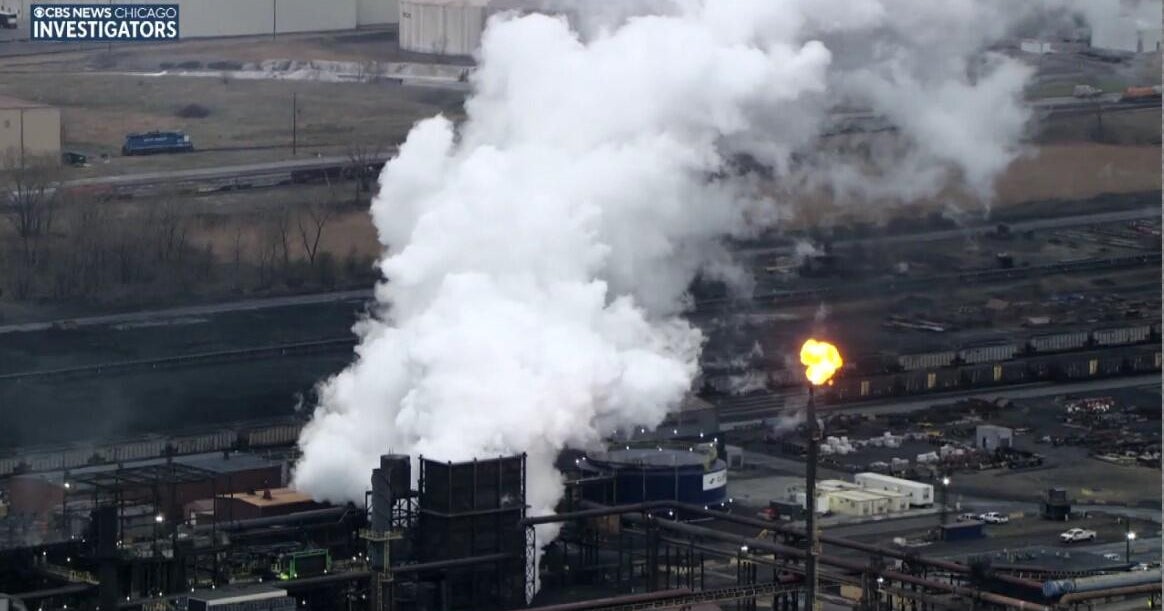Bay Area biotech firm eyes methane-eating microbes to curb greenhouse emissions
MENLO PARK – A Bay Area biotech firm is working on a clever strategy to capture a worrisome greenhouse gas, and in the process turn it into a rich organic fertilizer.
Each year, every cow on the planet will belch a lot of methane. While cattle burps are getting a lot of press, they are not the only culprits when it comes to methane gas production.
"Part of the challenge with methane is it comes from everywhere," explained Josh Silverman, CEO and founder of WindFall Bio, a startup located in Menlo Park.
Silverman told CBS News Bay Area how methane emissions also come from many sources, including as byproducts from coal, oil, and gas production, wastewater treatment plants, rice fields, farms, and landfills.
"So any place you have organic material that is breaking down, degrading, rotting it produces methane as a byproduct," said Silverman.
According to U.S. scientists and international experts, methane is a big problem. It's actually more potent than carbon dioxide.
"Methane not only warms the atmosphere more, but it also warms it much faster," noted Silverman.
"Methane is a very big deal," cautioned former U.S. Secretary of Energy Nobel Laureate, and Stanford professor Dr. Steven Chu.
At Windfall Bio, vials containing a pink liquid may hold the key to the solution. The liquid contains methane-eating microbes, usually found in soil.
These microbes are able pull methane out of the environment, and by consuming it, the microbes then transform a climate-harming gas into a beneficial product – in this case, valuable organic fertilizer.
"The microbes are at the heart of what we do, "said Dr. Carla Risso, Windfall Bio's Director of Microbiology.
Risso told CBS News Bay Area how these soil microbes have dramatically declined around the world. Here at the lab at Windfall Bio, they are cultivating billions of microbes on a daily basis.
They're being nurtured, nourished, and cultivated. The company uses a proprietary nature-based technology that will enable sustainable farming practices and create valuable agricultural assets on site where the microbes are deployed.
"We know what they like, and we give it to them. So, they will multiply and make tons more," advised the microbiologist.
Also, on the team of this nature-based approach: bioengineers Kaifeng Chen and Aram Balaian. The two are conducting experiments with the methane-eating microbes to optimize their diet and cultivation.
One effort: to see what substrate the microbes prefer to inhabit. They are also monitoring the optimal amounts of methane to provide to the microbes and keeping track of their growth.
"I personally think this concept, this technology, is really amazing and cool," said Chen.
"The fact that nature just produces this it's out there and you know we're seeing they're diminishing. I want to make it my job to try to restore that population and the soils," added Balaian.
Healthy soil microbes can then produce enhanced organic matter, which can be used as fertilizer or a soil amendment.
The idea is to provide the microbes to where the methane is created: on farms, cattle ranches, landfills water treatment plants, and the fossil fuel industry.
The microbes will be freeze dried before they are shipped, and then resuscitated with liquid nutrients before being applied to the land.
"Then they should come back alive and that's how they can do their jobs," explained Windfall Bio Biologist Dr. Judy Su.
She noted how the application of the microbes to the land holds many benefits.
"To me professionally this is a very exciting product and technology: how you can reduce the methane, help our planet, help our soil health our environment," exclaimed Su.
Chu is now advising the scientists at Windfall Bio. He believes their strategy makes a lot of sense.
"Why not capture it before it gets diluted? Capture methane at it source and to create a new energy source which seemed to be a really good approach," said Chu.
As for these scientists, they all expressed how they too want to make a difference.
"We need to focus on technology solutions that work," said Silverman.
"I choose to believe there is hope," said Risso.
"Being in this job, it gives me optimism every day becasue I see how many exciting technologies and companies that are coming up just like my own and they're really trying to make it their mission to reduce greenhouse gas emissions in the future, and have this world be livable for our kids," concluded Balaian.
In this case, all thanks to some mighty microbes.







